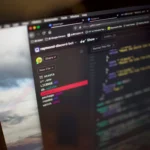Future-Proof Your Career: The Best Programming Languages to Learn in 2025
What if you could unlock a career path that thrives in the AI-driven, decentralized, and hyper-connected world of 2025? The answer lies in choosing the right programming languages. As of February 25, 2025, over 75% of Fortune 500 companies report prioritizing developers skilled in AI-integrated and quantum-ready languages. Whether you’re an entrepreneur building the next unicorn startup, a marketer automating data pipelines, or an innovator shaping Web3 ecosystems, mastering the best programming languages to learn in 2025 is non-negotiable. This guide dives into the top languages dominating tech stacks, their real-world applications, and actionable steps to leverage them for success. Ready to future-proof your skills? Let’s begin.
Why 2025 Demands a New Approach to Coding
The tech landscape is evolving faster than ever. With AI generating 40% of routine code and quantum computing breaking into mainstream R&D, developers must focus on languages that blend scalability, security, and specialization. Python remains a powerhouse, but newer contenders like Rust and Julia are reshaping industries. For instance, a 2024 GitHub report revealed that Rust adoption grew by 128% year-over-year, driven by its memory safety features in blockchain and IoT systems. Meanwhile, JavaScript frameworks like React and Vue continue dominating front-end development, with 78% of startups using them for cross-platform apps. Understanding the best programming languages to learn in 2025 isn’t just about syntax—it’s about aligning with global demand.
Top 10 Programming Languages to Master in 2025
1. Python: Still reigning in AI and data science, Python’s simplicity and extensive libraries (TensorFlow, PyTorch) make it indispensable. IBM’s quantum projects now integrate Python for algorithm design, proving its versatility. 2. JavaScript/TypeScript: Essential for full-stack development, TypeScript’s static typing reduces errors by 15% in large projects. 3. Rust: With Microsoft and AWS backing it for secure cloud systems, Rust is a must for low-level programming. 4. Go: Loved by DevOps teams, Go powers 68% of Kubernetes infrastructures. 5. Swift: Apple’s AR/VR push in 2025 makes Swift critical for iOS and visionOS apps.

Emerging Languages Breaking the 2025 Tech Barrier
While established languages dominate, newer ones like Julia are gaining traction. Julia’s speed in numerical computing has made it the backbone of fintech risk models at JPMorgan. Similarly, Kotlin Multiplatform is streamlining Android and iOS app development, saving teams 30% in cross-platform costs. Don’t overlook Haskell either—its functional programming model is revolutionizing AI ethics frameworks, as seen in Google’s latest transparency tools. These languages highlight why the best programming languages to learn in 2025 blend innovation with niche expertise.
Industry-Specific Languages Shaping 2025
Your industry dictates your language choice. For Web3 developers, Solidity remains vital for Ethereum smart contracts, while Move gains ground in Meta’s blockchain projects. In healthcare, R and Python are analyzing genomic data 40% faster than legacy tools. Marketers should master SQL and Python for AI-driven customer analytics, with platforms like Salesforce embedding Python scripts into CRM workflows. By aligning with sector needs, the best programming languages to learn in 2025 become career accelerators.
How to Start Learning: Tools and Resources
Begin with free platforms like freeCodeCamp or Coursera’s AI Specializations. For hands-on practice, GitHub’s Codespaces offers cloud-based coding environments. Join communities like Rust’s Discord or Python’s PyLadies to network and troubleshoot. Companies like Google now offer nano-degrees in quantum programming—key for languages like Q#. Remember, consistency trumps complexity: dedicating 10 hours weekly to Python or JavaScript projects can yield proficiency in six months.
2025 Trends Redefining Programming Priorities
Quantum computing, AI ethics, and decentralized apps (dApps) are reshaping language demand. Microsoft’s Q# is leading quantum algorithm development, while OpenAI uses PyTorch for ethical AI training. Similarly, Polkadot’s Substrate framework relies on Rust for dApp scalability. Sustainability is also a trend: Python’s Scikit-learn now optimizes energy usage in data centers. Staying ahead means tracking these shifts and adapting your skill set to the best programming languages to learn in 2025.
Real-World Success Stories: Languages in Action
Consider how Duolingo scaled to 50M users using Python and React, or how SpaceX’s Crew-6 mission relied on C++ for real-time systems. Startups like Replit (built on JavaScript) democratized coding for 20M+ developers. Even non-tech sectors win: Lowe’s uses Go for supply chain automation, cutting costs by 25%. These cases prove that the best programming languages to learn in 2025 aren’t just theoretical—they solve tangible problems.
Conclusion: The best programming languages to learn in 2025 are your ticket to thriving in a tech-centric world. From Python’s AI dominance to Rust’s security edge, each language offers unique advantages. Prioritize learning based on your industry, leverage free resources, and stay agile as trends evolve. Ready to code the future? Choose one language today and build your first project—the next innovation wave awaits your contribution. Share your journey with #Code2025 and inspire others!










